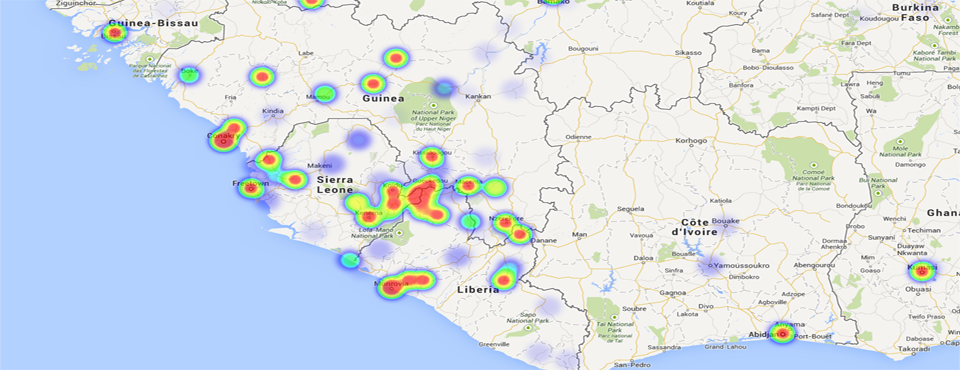
The ebola outbreak of the past year has intensified interest in early warning and situational awareness mapping of infectious disease across the world. From its inception, the GDELT Global Knowledge Graph has included mentions of major infectious diseases, including ebola, which has been used for Kalev's Foreign Policy columns on ebola early warning and domestic media coverage of the ebola outbreak, as well as an earlier pilot demonstrating contextual mapping of the second-order societal impacts of outbreaks.
Given GDELT's near-realtime monitoring of the globe and its special focus on local domestic media to catch the earliest indicators of disease outbreaks, we've been receiving enormous interest in how GDELT can be used for global disease monitoring. To this end we've been hard at work extensively expanding the array of global diseases recognized by GDELT. It should now cover most major human, animal, and plant diseases under the TAX_DISEASE theme. In addition, we have begun creating special categories to isolate key categories of non-human diseases with particular economic impact. The first addition is the new TAX_PLANTDISEASE theme, which identifies major plant-related diseases such as soybean rust, tobacco streak virus, potato scab, and many others. The goal of this category is to provide a specific targeted theme that can be used to identify agricultural disease outbreaks that may have impacts on food security, economic productivity, and related areas.
We will be steadily expanding these categories in discussion with a number of partners, so look for a series of new developments in this area over the coming months!